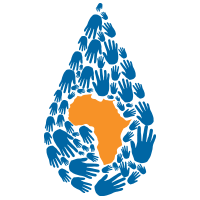Globally, 1 in 9 people still have no access to clean water. But in the communities we serve, it's 9 out of 9. Water is a daily and crippling challenge. Without water you can't grow food, you can't build housing, you can't stay healthy, you can't stay in school and you can't keep working.
Today, hope is on hold in over half of the developing world's primary schools without access to water and sanitation.
But the water crisis can be solved! Help me spread the word and let's change the world and share with helping these people in need! Every little bit matters! Wether each one of us gives $1, or $1,000, just that act of giving alone is an IMMENSE blessing.
Facts:
~Every day in rural communities throughout sub-Saharan Africa, millions of people suffer from a lack of access to clean, safe water. For school-aged children it's a burden that traps them in poverty.
~Children often bear the burden of walking miles each day to find water in streams and ponds, full of water-borne disease that is making them and their families sick.Illness and the time lost fetching it robs entire communities of their futures.
~Girls under the age of 15 are twice as likely as boys to be the family member responsible for fetching water. We believe she deserves to take water for granted, just like you. To pursue a hopeful future, she needs water - every day.
Disease & Death An estimated 801,000 children younger than 5 years of age perish from diarrhea each year, mostly in developing countries. This amounts to 11% of the 7.6 million deaths of children under the age of five and means that about 2,200 children are dying every day as a result of diarrheal diseases.
Unsafe drinking water, inadequate availability of water for hygiene, and lack of access to sanitation together contribute to about 88% of deaths from diarrheal diseases.
Worldwide, millions of people are infected with neglected tropical diseases (NTDs), many of which are water and/or hygiene-related, such as Guinea Worm Disease, Buruli Ulcer, Trachoma, and Schistosomiasis. These diseases are most often found in places with unsafe drinking water, poor sanitation, and insufficient hygiene practices.
Worldwide, soil-transmitted helminths infect more than one billion people due to a lack of adequate sanitation.
Guinea Worm Disease (GWD) is an extremely painful parasitic infection spread through contaminated drinking water. GWD is characterized by spaghetti-like worms up to 1 meter in length slowly emerging from the human body through blisters on the skin anywhere on the body but usually on the lower legs or lower arms. Infection affects poor communities in remote parts of Africa that do not have safe water to drink. In 2015, 22 cases of Guinea Worm Disease were reported. Most of those cases were from Chad (41%)
Trachoma is the world’s leading cause of preventable blindness and results from poor hygiene and sanitation. Approximately 41 million people suffer from active trachoma and nearly 10 million people are visually impaired or irreversibly blind as a result of trachoma. Trachoma infection can be prevented through increased facial cleanliness with soap and clean water, and improved sanitation.

Donated $100.00 on 01/16/19